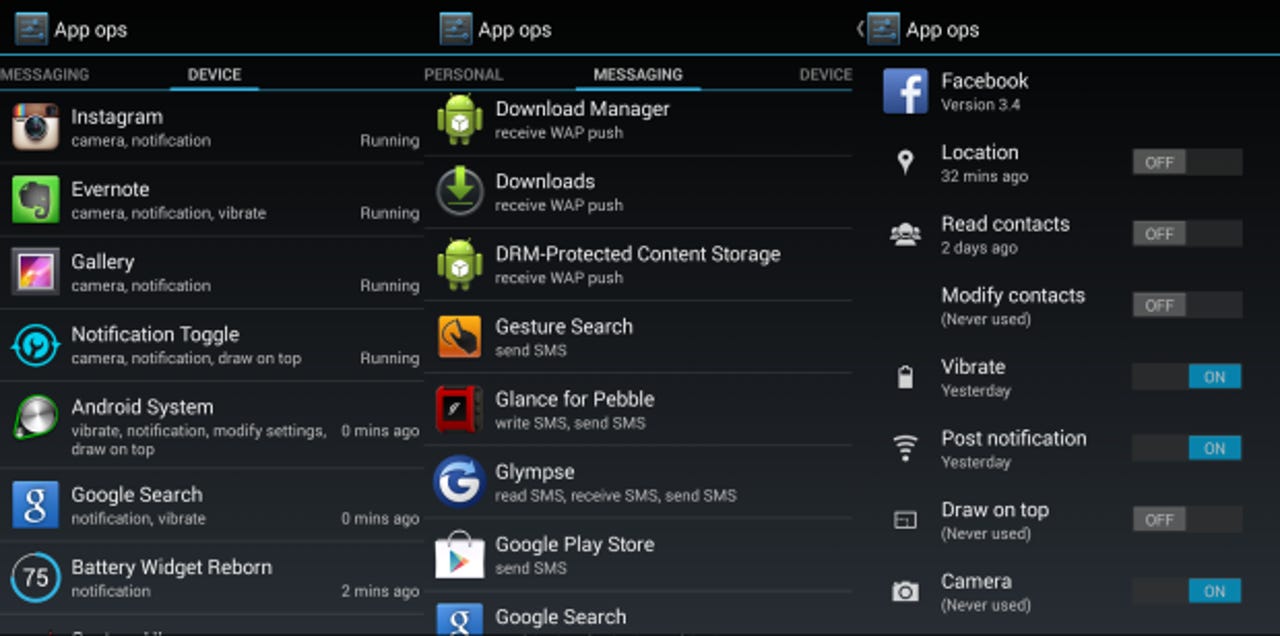Hidden Android feature allows users to fine tune app permissions

With Android 4.3 starting to roll out to a number of devices, one of the things that Google has not mentioned is that the update has a new, hidden feature that can restrict the permissions of apps on a case-by-case basis.
Called App ops, the hidden feature is built into the mobile operating system, but hasn't yet been linked to any of Android's settings menus. It allows users to selectively remove permissions to phone features, such as access to location, contacts, or the device's camera. It also gives users a rough indication of whether these permissions have ever been used in the app.
Android Police first noted the feature, showing how third-party applications like Nova Launcher can be used to access the hidden settings screen, but an application, App Ops Starter, has already been released on the Play store to give users easy access to the settings. It appears to be an intended future feature of the operating system, and, as such, does not require users to root their phones.
Each app's permissions can be toggled on a per-app basis, giving users the option of installing applications that they might consider to overstep their privacy bounds, but catching any permissions at the operating system level. For example, users who may not like Facebook's ability to track their location or read their contacts can disable these permissions, while still allowing other features of the app.
It also gives the user a rough idea of how often apps are accessing their information, showing how long ago it attempted to use a permission.
One reason why the feature may not have been completely implemented is that it does not currently tell the user when permissions that have been blocked are accessed. This can cause problems for app developers who never anticipated that specific permissions would be blocked, with some apps silently failing.
Other rough edges include the inability to completely remove certain permissions. For example, there doesn't appear to be any way to restrict network access for any apps, and although some apps such as the Google Play Store have the permission to send SMSes, there is no toggle option to disable it.
